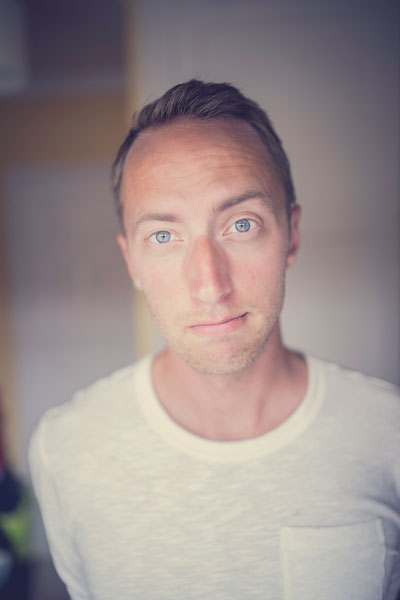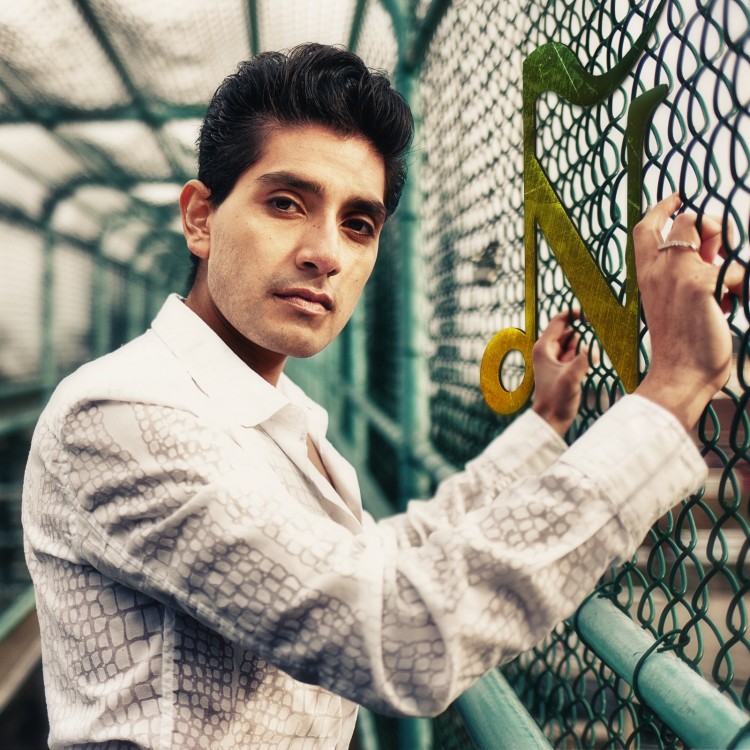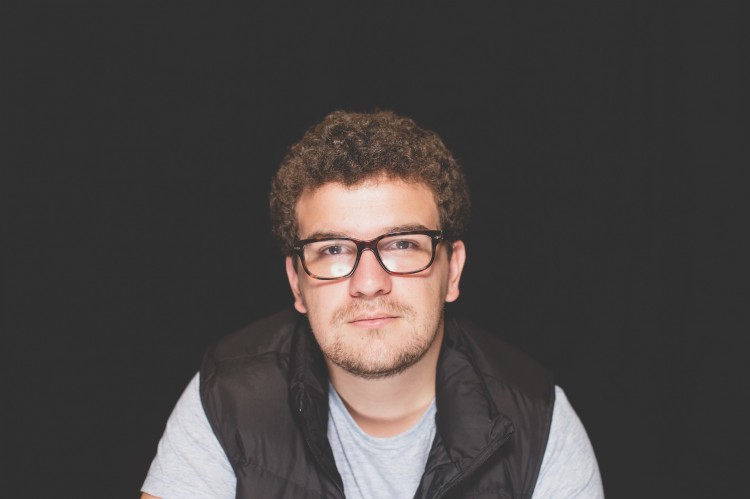Each day this October, HeadsUpGuys is sharing stories from men who’ve overcome depression while we raise funds to keep our website resource going. By the end of the month we will have gathered one of the largest collections of depression recovery stories from men ever.
Depression affects millions of men every year, and is the leading cause of disability worldwide. Unfortunately, a lot of guys buy into myths about depression being a sign of personal weakness or that real men don’t ask for help. Though they couldn’t be any further from the truth, these myths prevent men from reaching out to build the necessary supports to successfully fight depression. This is where HeadsUpGuys comes in, and where we’ve connected with men, their supporters and professionals – breaking down the myths and providing guys with the tools to get better.
Since launching in June 2015, HeadsUpGuys has quickly made a huge impact:
• Over 140,000 website visits from all around the world – (US, Canada, UK, Ireland, Australia, New Zealand, Philipines, India, and Pakistan)
• Over 21,000 self-checks completed
• Over 50 sites linking to us as a valuable resource – (Partners for Mental Health, Bring Change 2 Mind, The University of British Columbia, Movember Canada, Movember US, The Mighty, Anxiety and Depression Association of American, Guard Your Health, and the International Suicide Prevention Association)
If our mission strikes a chord with you, we’re asking are supporters to help raise funds as part of our campaign/fundraiser to Keep HeadsUpGuys Going.
Here’s a sample of some of the stories we’ve collected. To see more, visit our site.
1. Joel Robison
“I’m a 32-year-old Canadian photographer who specializes in creating conceptual storytelling portraits that allow us all a chance to see into another world. One of the projects I’m currently working on is an ongoing series called “What It Looks Like,” where I ask people who have experienced depression, anxiety or other mental illnesses what their experience looked like when they were at their low point and when things started to feel better. I then create a blog post with images that I’ve created illustrating these experiences using the visuals the person used.”

What was the major turning point for you?
“I think my major turning point was being honest both with myself and with my family and friends. For a long time I’d been pushing things away, hiding my emotions and pretending that everything was OK, but it was getting to the point where I was afraid I’d drifted too far and I wasn’t going to come back. I wrote an honest blog post just telling people where I was with my mental health and that was really the turning point — it was like deciding to go back and climb back up the mountain.”
What are 3-5 things that really helped?
“Being honest: Telling people how I was feeling and when someone asked, to tell them the truth. It really helped to just acknowledge things as they come.
Going outside: Spending time outdoors, moving and getting sunlight was really helpful, it gave me something to do that was getting my mind off just the same things.
Saying no: Learning to say no to people and to myself really helped. There were days when I just wanted to sit and not do anything, and I just had to say no, I wasn’t going to waste the day.”
What advice would you give to other guys?
“Reach out, I feel now more than ever we’re in a time when people are both extremely connected but also extremely isolated. There are so many platforms for people to use to connect and talk about things they are struggling with. Find a friend or family member who will just let you talk or share or spend time with you without having to say anything. Those things are important, stay in contact with people.”
2. Adam Hague
“I am a self-employed conceptual artist/photographer from Brunei. The majority of my works are self-portraits incorporating surreal concepts with very real issues. I’m also currently doing wedding photography full-time.”

What was the major turning point for you?
“The major turning point for me was when I realized I was going through a cycle of going to bed unhappy or unsatisfied with my day, and then dreading waking up the next day because it was going to be a repeat of the same situation. It felt like I was trapped in a cage that wasn’t even locked — a cage that I could actually exit from, I just didn’t know how or was too scared.”
What are 3-5 things that really helped?
“Loved ones: No better cure or comfort in this world than knowing I have the support of my loved ones and close friends.
God: I’m not the most religious person and I try not to talk about religion too much. But I’m a strong believer that ‘if God intends good for someone, he inflicts trials.’
Photography: I use photography to channel my frustrations and emotions. Sometimes it’s easier than talking.
Sports/Keeping Active: I find long runs at the beach to be very calming. I also enjoy doing Crossfit; it helps me discover my abilities/potential that I never thought possible. I’m grateful to the crossfit community at ‘Crossfit 673 Jerudong’ and ‘Team Believe.’”
What advice would you give to other guys?
“Never put yourself in a situation where you have to shoulder the burden alone. We are human, we are meant to have feelings. Talk to someone about what you are going through. Find positive things/activities to do and channel your energy and emotion into it. Depression is not a sign of weakness… ever!”
3. Jonny-Noel
“I’m a singer, songwriter, and co-producer who was born in Tegucigalpa, Honduras and currently resides in Vancouver, British Columbia.”

What was the major turning point for you?
“At the time I was in a very toxic work environment that was continuously out of my control, while at the same time I was in a relationship that was extremely unhealthy, emotionally abusive and one night turned physical — which was the instant end for me and the beginning of the end of the darkness I was living in. The 2008 recession hit and I was unable to just quit the horrific company I was working for as no one knew at the time what was going to happen.
One day I had this realization that people all over the world were suddenly in very turbulent, if not devastating, economic situations and there was nothing I could do to change that. I then thought to myself what do I have power over? The answer, my outlook, my own well-being, my happiness. I was a happy person and I really disliked the way I had been feeling for months on end. I realized that despite the negative things that were happening to and around me, I’m the only person in the world who can decide the way I feel when I wake up and go to bed along with the way I react to things. The sudden knowledge that I’m the only person who was able to hold the key to my own happiness was extremely enlightening and freeing. I haven’t looked back ever since that day. I returned to the way I was before this very dark time in my life and as a result became a better man, friend and son.”
What are 3-5 things that really helped?
“Focus on the positives: Focusing on the positives in my life and remembering how many people I have around me who truly care.
Talking to others: Talking to those I trust and love after this realization. Talking about what I had been keeping locked up inside allowed me to own my part in reaching a dark place while simultaneously cemented my devotion to my own happiness.
Learning to move forward: Learning from mistakes and experiences, but not bringing them with me. I can reflect and/or talk about the negative experiences I have lived through but I don’t feel attached or bound to them. I focus on the way I handle/react to things, knowing that difficult stresses of life are also positive learning experiences. It’s how you pick yourself up from mistakes, let downs, and tragedies that is really important.
Friends: Surrounding yourself with people who are truly friends. Through thick and thin, good and bad. I can’t express enough how important it is to really know who your actual friends are.”
What advice would you give to other guys?
“Talking. I think communicating to someone about what is going on with you is vital. Talk to friends or family members and if you feel like no one can understand, then go and speak to someone professionally. I’d even say start with a professional. There is not the potential of shame or judgement that some may feel comes with talking to friends and family.
There is nothing wrong with getting professional help and in no way does it make you weak or less of a man because you needed to seek guidance to prevent you from drowning in darkness. I also believe facing and taking responsibility for your part in why you feel the way you do is very important. I’m not saying it is anyone’s fault, but in my opinion, understanding and accepting you have willingly played a part in why you have reached this dark place in your life is a very important step.”
4. Matt Hunter
“I’m a Canadian technology entrepreneur, social activist and artist. I love nature, truth, books and great friends. During my days, I help people improve their sex lives and relationships through my platform cambyo. We share honest stories from peoples’ intimate lives and connect people with vetted sex and relationship coaches who are a great fit for them.”

What was the major turning point for you?
The major turning point was actually opening up to someone, in my case it was my mom. I silently struggled by myself for many months. She immediately told me that this was a normal thing and took me to a bookstore to buy me a CBT [cognitive behavioral therapy] workbook. Once I understood this was a common human occurrence and that there were solutions, I was able to get to work.
What are 3-5 things that really helped?
CBT: A CBT workbook entitled “When Panic Attacks.”
Common Human Experience: Actually acknowledging that I was depressed and anxious instead of thinking I had just gone crazy. So basically knowing it was a common human experience.
Major Life Decisions: Being able to make decisions to shift my life to one that was more aligned with my authentic self. In this case, it meant quitting my job and becoming an entrepreneur.
Taking Care: Meditation, exercise, eight hours of sleep, plenty of nature and great nutrition are all important inputs for me to feel good.
What advice would you give to other guys?
Open up to someone who can help you with this. They won’t think you’re weak, they will want to help. Suffering (especially of this kind) is a very common thing, don’t feel ashamed to acknowledge that you’re dealing with this. CBT, mindfulness and wellness can really help, at least that’s what worked for me.
5. Connor McCracken
“I’m a photographer and student who has been a mental health advocate for years because of my own experience, but recently I have been focusing on a project of mine called Project Pilgrim. Project Pilgrim is a Humans of New York style photography blog that’s goal is simply to get people talking about mental health.”

What was the major turning point for you?
“In my second year of university I was forced to drop out of school because of the depression and anxiety I was facing. I had never felt something like that before and so I headed home from school and sought out the help I needed. I was treated with CBT and even though I still am struggling, without that treatment I would not be where I am today.”
What are 3-5 things that really helped?
“It’s OK to ask for help: When I left school nobody knew I was struggling. Once I left I told people why and they were all very supportive and understanding. I wish I knew that it was OK to ask for help and talk to others while I was struggling.
Keep talking about it: Something I have found once I finished treatment is that everyone expects you are suddenly cured. By continuing the conversation around mental health, you can not only support yourself by letting others know how you are doing, but you can also educate people around you who may not know what it is like to be depressed or anxious.
Accepting it’s not your fault: Even after all of the great work I have done with mental health around B.C. and Canada, sometimes it is hard to see that I am no weaker or less manly than any other guy who many or may not be depressed. One of the major things that helped me was accepting that what I was going through was not my fault and that there is very little I could do to prevent myself feeling this way.”
What advice would you give to other guys?
“Forget about what everyone else thinks. No one else knows how you feel or what kind of struggles you’re going through on a day-to-day basis. Don’t let others put you down about your mental health issues and instead lift up others around you so that we can all begin to feel better together.”

